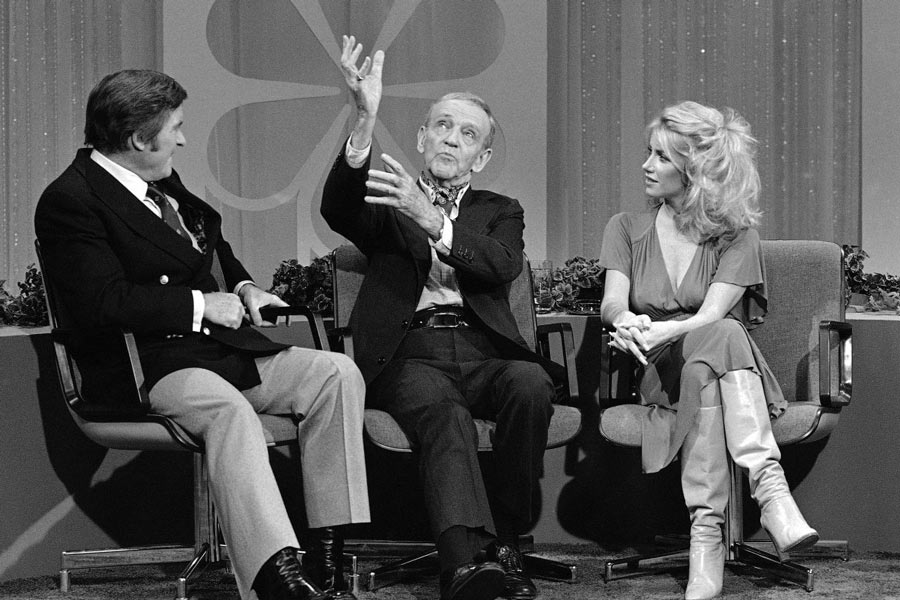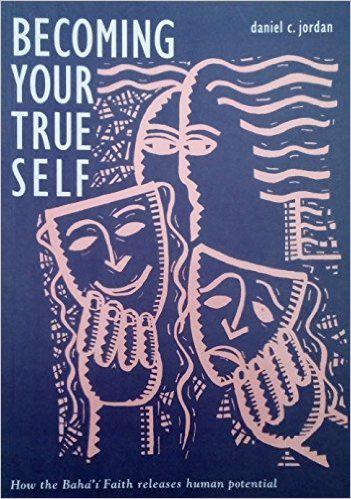The views expressed in our content reflect individual perspectives and do not represent the authoritative views of the Baha'i Faith.
Forget your own selves, and turn your eyes towards your neighbor. Bend your energies to whatever may foster the education of men. – Baha’u’llah, Gleanings from the Writings of Baha’u’llah, p. 9.
My friend Dan Jordan, during the time I knew him, became a famed educator and philosopher. He truly did bend his energies to education—but in the biggest sense possible, far beyond the walls of schools.
More than once I turned on the television and saw Dan, holding forth eloquently on some topic related to psychology or music or education, or telling funny stories about raising his three daughters. Dan appeared as a guest or panelist on over two hundred television and radio programs, and became a regular on popular network talk shows like The Dinah Shore Show and The Mike Douglas Show.

The Mike Douglas Show
A well-known guest lecturer at more than 70 universities in the U.S. and abroad, Dan gave courses, conducted seminars, and spoke extensively on his work in psychology and education. However, I think his popularity on TV and the lecture circuit had much more to do with Dan’s joyous, expansive, intellectually- and emotionally-engaging personality than it did with what he knew or the subjects he had mastered. Dan had that mysterious quality we sometimes call star power—and it came directly from his spirit. If you met him, you instinctively felt inspired and uplifted.
Dan’s growing celebrity on the talk-show circuit didn’t interfere with that spirit, either. He devoted most of his life’s energies to his enthusiastic, deep belief in the Baha’i Faith. Dan served on the democratically-elected National Spiritual Assembly of the Baha’is of the United States for 20 years, and he and his wife Nancy travelled the globe in support of the Baha’i ideal of the oneness of humanity.
 In the mid-1960s, Dan began to give Baha’i talks and lectures called Your True Self. They focused on the process of becoming a spiritual being, centering on the concept of how we realize and release our innate human potential. Encouraged by many people who heard and loved those talks, Dan wrote Becoming Your True Self: How the Baha’i Faith Releases Human Potential and published it in World Order Magazine in 1968. (If you like, you can read the entire text of Becoming Your True Self.)
In the mid-1960s, Dan began to give Baha’i talks and lectures called Your True Self. They focused on the process of becoming a spiritual being, centering on the concept of how we realize and release our innate human potential. Encouraged by many people who heard and loved those talks, Dan wrote Becoming Your True Self: How the Baha’i Faith Releases Human Potential and published it in World Order Magazine in 1968. (If you like, you can read the entire text of Becoming Your True Self.)
That brief essay, later published by the Baha’is of the United States as a short booklet, transformed the lives of thousands upon thousands of people, and continues to today. It packs many Baha’i concepts and principles into Dan’s profound, concise theory of the knowing and loving capacities we all can develop:
Baha’u’llah teaches that the highest expression of the self is servitude. The degree to which this highest station of servitude can be achieved is commensurate with the degree to which the basic powers or capacities of the human being can be released. The process of becoming one’s true self, then, is synonymous with that process of developing basic capacities and dedicating them to the service of humanity. The daily decisions and actions which reflect this “becoming” are essentially religious in nature, for Baha’u’llah equates work of all kinds performed in a spirit of service — in the spirit of that highest station of man — with worship. The person who begins to see the religious nature of “becoming” will not only recognize a profound new dimension in work and worship, but will also see religion in a new light. He will begin to understand that when the force which continually enables one to grow disappears from any religion, it is time for it to be renewed, for religion devoid of that force is little more than empty rituals, meaningless dogmas, and social conventions which block the expression of the human spirit and impede social progress.
Service to mankind is given quality by the depth and character of the capacities of the human being rendering it. What are these capacities? Baha’u’llah identifies them in His statement of the animating purpose behind man’s creation: to know and to love God. Here the two basic powers or capacities of knowing and loving are clearly specified and linked to our purpose — our reason for being. Thus, for a Baha’i, becoming one’s true self means the development of one’s knowing and loving capacities in service to mankind.
This understanding gives substance to the notion of spirituality. A spiritual person is one who knows and loves God and who is committed to the struggle of developing those knowing and loving capacities for service to humanity. By definition, then, being closed-minded about something, refusing to look at new evidence — blocking the knowing capacity, or reacting to others in unloving ways — are all signs of spiritual immaturity or spiritual sickness.
All other virtues can be understood as expressions of different combinations of these basic capacities of loving and knowing as they are applied in different situations. The loving capacity includes not only the ability to love but also the ability to be loved — to attract love. We cannot have lovers without loved ones. If we do not know how to be loved or cannot accept it, then we frustrate others who are struggling to develop their capacity to love. Not accepting someone’s love is very frequently experienced as rejection and does untold amounts of damage, particularly in young children.
The knowing capacity also includes a knowledge of how to learn and how to teach. Teaching and learning are reciprocal aspects of the knowing capacity. No teacher is a good teacher who cannot learn from his pupils, and no good pupil fails to question his teacher so that both teacher and pupil learn.
Each capacity supports and facilitates the development of the other. In order to know, for instance, we must love learning; if we are to love, we must know how to love and how to be loved. – Daniel C. Jordan, Becoming Your True Self, World Order Magazine 3:1, 1968.
Here, you can see Dan’s incisive insight—he really knew how to get to the essence of our humanness.
Next: Dan Jordan’s Untimely Death
















Comments
Sign in or create an account
Continue with Googleor